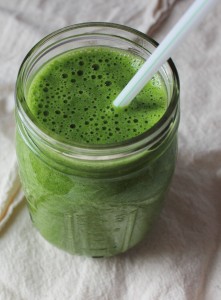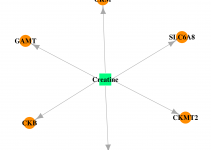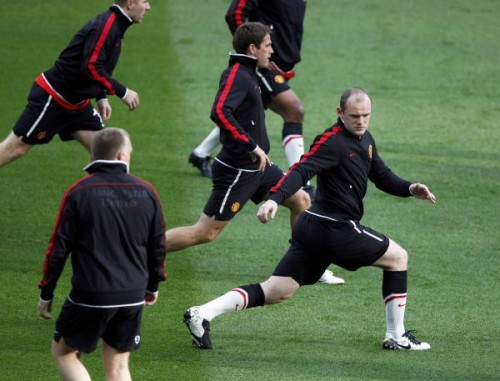We try to eat perfectly to optimize our game all the time, but often times it’s difficult to be 100%, and sometimes it keeps us sane to be at about 85-90% perfect and to let us falter a little. If you can’t do 100% all the time, you should at least try to do it for game days.
The goal of this post is to answer the question we all ask, “what should I eat before a soccer game?”
If you follow the principles below, you will come into a game mentally and physically prepared. Taking your game day nutrition seriously will give you the solid foundation to display all the hard work you’ve been putting in at practice.
Best Pregame Meal Principles
Contents
Lets begin by looking at what you need of your body come game time and work our way backward to see how our food choices can optimize our bodies to meet the requirements
We want our glycogen storages in our muscles to be full and ready for our explosive movements. This will keep our muscles running all game long.
We want to feel light, with our blood circulating through our entire body and not in our bellies digesting meals.
We want to be fully hydrated, except without the feeling of water weight in our stomach.
We want to have substantial potassium to avoid muscle cramping.
We want to have plenty of amino acids in our system so we can avoid breaking down muscles to get the amino acids we need for energy.
We want to come in with high energy and alertness, but with a calm sense of focus.
We want to come in confident and ready to fight to the death, but with an overall sense of composure, not too amped up and not too relaxed.
To come into a game like this, we need to turn to nutrition. Besides training, nutrition will be one of the best ways to prepare for our games. Now lets look at each part individually and see how exactly we can attain it through food.
Full Glycogen Storages
Glycogen is the way our body stores carbohydrates in our muscles. I explain it more in depth in here, but just know that this energy is used for explosive movements, so we want it completely full going into a game. This will take evaluating how you recovered and ate the past few days. If you try to replace all the glycogen in your muscles on game day, then you’ll be forced to spike your blood sugar by high carb intake, which as we all know leads to a quick drop of blood sugar.
For a 90 minute game, you want your blood sugar at a steady level, which means you should load your body with glycogen the night before DEPENDING on your past weeks activities and carb intake.
“Carbo loading” the night before a game when your muscles are already rested and filled with glycogen and your liver has plenty of carbs for normal body function will just cause the extra carbohydrates to be stored as fat. We don’t want to be going into a game with extra weight slowing us down.
Most players have the day before a game to have a light training, go over tactics and continue muscle recovery from the tough practices preparing for the upcoming game. This means your body is not in that big of a glycogen deficiency. This will take some planning on your part. Your muscles store around 300 to 400 grams of carbohydrates, and a soccer practice depletes about half of that. So think about your practice schedule and your eating for the days leading up to game day to give you an idea of what your carb intake should look like.
So, if your glycogen storages are full the morning of the game, then that is perfect. That means you only need slower digesting carbohydrates like vegetables and fruits. While fruits are fructose, a type of sugar, they don’t digest as quickly as most carbohydrates because of the fiber in them. Also, eating fruit or carbohydrates in general, with protein and fat slows down the digestion of the carbohydrates, which in turn helps suppress and insulin spike.
The carbohydrate sources I recommend for game day are spinach and kale. They are full of fiber, are slow digesting carbohydrates and are extremely nutrient dense, especially kale (1).
I also would eat a banana as well with breakfast. High in fiber and potassium, it will help give your body the glucose it needs to function so your body is running on all cylinders. A banana before warm up can help as well. Since it’s high in fiber, the insulin response will not be great, but it’ll add a little extra glucose into your system right before your begin using your glycogen storages in your muscles.
An extra tip for lower insulin response is cinnamon. Find a way to add it into your morning, and it will help your blood sugar response and your energy level throughout the game (2).
Feeling Light
We want to be feeling light when we go into a game. I know every player has had at least one practice where he or she ate too much too closely to practice and then felt sick during it. When you eat a big meal, your body sends more blood to your stomach to help with digestion. This is not what we want. We need our blood to be going to our muscles and to our brain so we are able to optimally perform athletically and mentally.
To avoid this sick and heavy feeling, we need to eat our last meal 3-4 hours before our game time. This will give your body plenty of time to digest it, get the waste out and have the nutrients circulating through your body. This timing depends on what and how much you eat. I prefer to have smoothies as my last meal, so I tend to aim to finish them right around 3 hours before my game, since they digest quicker due to being in liquid form. If you are eating a solid meal, then you’ll want to give yourself time. This timing also depends on individuals’ metabolisms, but 3-4 hour window is where you should begin your experimenting at, trying to get the timing down for yourself better and better each game.
As I mentioned above, if you want a little something after this last meal, a banana before game time would be good, along with a handful of nuts. Make sure it’s nothing big that will take the resources of your blood circulating away from your muscles and brain.
Full Hydration
Being fully hydrated is almost too necessary to explain, but there are points to hydration that we need to be aware of. Being moderately dehydrated, 2% of your body fluids, has drastic effects on your performance, decreasing endurance by up to 30% (3). We perform better when fully hydrated. Plain and simple. We should be drinking as much water as possible the night before and the morning of a game. However, too much water in our stomachs when we go to play can lead to a heavy feeling and sometimes side cramps. In order to avoid having water splashing around in our bellies, we should taper off heavy fluid intake about 45 minutes before a game. This is about how long it takes the water to get through your system.
Try to drink about a gallon of water a day.
Avoiding Muscle Cramps
There is nothing more embarrassing than cramping up while playing soccer. Everyone rushes over to see if you’ve injured yourself, and you have to shamefully tell them, it’s a cramp. A cramp is simply a lack of preparation. You’re not hydrating properly and you’re not getting enough electrolytes, typically potassium and sodium (4). With the above tips, I’ve already recommended a banana before the game and plenty of water. This, combined with have plenty of glycogen storage, physical preparation through trainings and having some salt with breakfast or in a sports drink will keep you from getting cramps during a game and embarrassing yourself, because you’re better than that.
Amino Acids
Your body uses amino acids for almost all body functions, and when you’re pushing your body in a game of soccer, your body needs amino acids more than ever. If you don’t have amino acids readily available for your body to use, it goes catabolic. Catabolic means that your body begins to breakdown the proteins that make up your muscles to get the amino acids it needs, and yes, this is as bad as it sounds. I go into depth with amino acids and protein here.
However, through proper nutrition, we can avoid our body going catabolic along with the muscle soreness that comes along with it. This begins with getting amino acids in our body with our last meal. As I have covered before about amino acids, animals are our best source of them. While bacon and steak shouldn’t be our go-to pre-game meals due to their higher demands of digestion, we can go for eggs and some ham. Eggs are not only a great source of protein, they are packed full of nutrients like protein, Vitamin D, Vitamin A, Vitamin B2 and iodine that our body loves and saturated fat, as I have talked about are actually really good for us (5). 2-4 eggs the morning of a game will leave you with amino acids and nutrients to keep your body in high gear for 90 minutes.
An extra tip: BCAAs, or branched chained amino acids, are a great option for extra insurance against going catabolic (6). Since they are purely amino acids, you can take them closer to game time, since they are extremely easy to digest due to the branched chain. They will help you avoid muscle breakdown along with improving your muscle recovery. BCAAs are legal for college players to take, however, they are not legal for colleges to provide to their players.
Another reason for making sure you get plenty of protein in your last meal is for the specific amino acid tyrosine, which promotes the neurotransmitter dopamine (7). Naturally raising your dopamine will keep you alert, motivated and energized for hours after the meal.
High energy, alert, yet focused
This is where things start to get fun. Preparing mentally for a game through food choice is not really discussed often, but it is actually surprising the effect that food has on your thinking. Your thinking and mood are based on the presence of hormones and neurotransmitters in your body, and while this sounds complicated, it’s not.
To get the mentality of having lots of energy and alertness, yet being able to focus all this energy towards the game comes from balancing out the minor caffeine that comes from tea with the relaxing and focusing chemicals within it. Drinking green tea has been shown to do this because of its low caffeine combined with its high levels of L-Theanine (8). Now you can get an enhanced effect of this high energy alertness with an overall sense of calm by drinking coffee and supplementing with L-Theanine, since regular green tea does not have much caffeine in it, and it’s L-Theanine levels are not that high. The dosage you would want for this would be 100mg L-Theanine per cup of Joe.
Another alternative is to drink Yerba Mate tea. Yerba Mate, which is a traditional South American tea, which gives similar effects of alertness, energy and focus (9).
These options will leave you feeling highly alert, yet without any jitters and lack of focus that sometimes comes from consumption of caffeine.
A sense of dominance and confidence
You want to go into a game with confidence and swagger about you that you are going to win. No questions, plain and simple, you are going to win the game. Now while this feeling is often breed into players, there ways that foods can help your drive and confidence through promoting the right hormones and neurotransmitters.
Testosterone. Everyone has heard of it, but do you know what it is responsible for and how you can promote it? Testosterone is a steroid hormone that, for soccer players, is important due to its effects on aggression. Higher testosterone levels will not only make you fight harder, but they will make you want to assert your dominance more.
We can boost our testosterone through healthy fats. The cholesterol in fats is a precursor to testosterone, and a boost of it through fats such as a fish oil supplement, avocado or coconut oil will help give you some extra swagger when you walk onto the pitch.
However, we cannot be only seeing red when playing soccer. If we are only aggressive and are not balancing it out with a sense of composure, then we’re not going to play our best. Following the directions above about drinking tea before a game can help with keeping composure while adding aggression to our game. Also, we can increase serotonin, which is a neurotransmitter that promotes calmness, through a couple of ways. One is to get solid sleep. 7-8 hours, in complete darkness is the best way to keep our serotonin levels high (10). When it comes to food, avocado, almonds, kiwis and bananas all have the amino acid tryptophan, which is the key ingredient to making serotonin in your body (11).
Extra Tip: Eat a tablespoon of honey before bed to drastically improve the quality of your sleep (12).
Example of Pre-Game Meals for Soccer
So we have just covered many ways to fully prepare yourself for coming into a game as prepared as possible. Now lets look at a couple of ways we can put this into practice.
Let’s use a game at 1 o’clock for our example.
Working backwards, this means that we would want our last meal before the game to be between 9-10, which will give us plenty of time to digest.
First example:
Upon waking:
- Get 2 glasses of water in you within a half an hour of waking up. You just spent 7-8 hours not drinking water, and your game is coming up.
9 a.m.
- 3-4 Scrambled eggs with veggies and slices of avocado.
- The eggs have the essential amino acids we need to provide energy for our muscles and are enough calories to provide us with energy for the game.
- Do not skimp on the eggs with egg whites. Since the avocado is a monounsaturated fat, we need the egg yolks for our saturated fat to help with the promotion of testosterone and long lasting energy
- Load of the on the veggies in the scramble. I like to sauté them in olive oil before adding the eggs in. These will provide slow releasing carbohydrates.
- Tomatoes
- Bell Peppers
- Spinach
- Mushrooms
- Olives
- Onions
- A bowl of fruit
- Fruit will help provide vitamins and minerals that help your body function as normal.
- They fruit will provide more carbohydrates for your body, and since they are being eaten with fats and protein, they will digest slower than if they are eaten on their own.
- If you didn’t refuel your muscle glycogen storages properly the last couple days, then a small side of oatmeal can help.
- Get plain oats and cook them. Do not use the crappy oatmeal with weird flavors added into it.
- Adding in berries and raisins in are a good add as well for some more carbs.
- Make sure to have a few glasses of water with breakfast. At this point, you should be drinking water continuously.
11 a.m.
- You have to be the field in about an hour for warm-ups, so now is a good time to take advantage of the benefits of tea.
- Is it a cold day? Then brew up some Yerba Mate, green tea or coffee, but make sure to pair the coffee with L-Theanine, to not over stimulate yourself.
- Playing on a hot day? Prepare the tea the night before and put it in the fridge. The iced tea will have the same effects that the hot tea, so there is no need to avoid this advantage because of the weather.
- Mix some cinnamon in with your teas.
12 p.m.
- It’s time to step out on the pitch and begin warm-ups.
- Eat half a banana and take 10mg of BCAAs
- The banana will help with serotonin production, potassium levels and another last minute boost of carbs.
- The BCAA’s will help your body avoid breaking down your muscles for energy needs, which will help with post game soreness and decrease muscle loss
- Eat half a banana and take 10mg of BCAAs
1 p.m. – Game time
- Chew peppermint gum during warm-ups or during the game.
- Chewing gum for 10 seconds has been shown to improve reaction times by 7% for up to 15 minutes, because when you chew, you stimulate the promoter cortex, which prepares your brain for movement and reaction (13).
- In the study, participants’ reaction time increase on average by 36 milliseconds. A penalty kick takes about 50 milliseconds to reach the goal line. Milliseconds can make a difference.
- The smell of peppermint increases power output, including running speed (14).
- Chewing gum for 10 seconds has been shown to improve reaction times by 7% for up to 15 minutes, because when you chew, you stimulate the promoter cortex, which prepares your brain for movement and reaction (13).
- If you drink sports drinks during games, partially freeze them.
- Drinking sports drinks in slushy form was shown to improve exercise endurance by 10% (15).
Eating like this will prepare you properly for a game. Another way you can prepare, as I prefer to, is with a smoothie. Neither one is better than the other is, but I feel lighter after smoothie then eating a solid breakfast, but other players may like the feeling of filling up a few hours before the game or eating something warm that the above example would give.
 My pre-game smoothie (remember since it’s not solid food to have it closer to 3 hours till game time than 4).
My pre-game smoothie (remember since it’s not solid food to have it closer to 3 hours till game time than 4).
- 1.5 cups almond milk
- 1 cup egg whites
- I know I said early don’t skimp on the yolk, but the coconut oil provides the saturated fat needed in this smoothie
- 1 cup water
- 30 grams whey protein isolate
- ½ cup spinach
- ½ cup kale
- 2 tablespoon cacao powder
- Cacao powder is damn awesome, and I’ll talk about it in the future. But for now this article should be enough to explain why.
- 3 tablespoons almond butter
- Almonds are better for you than peanuts, but it is pricier, so don’t feel bad going with peanut butter if the budgets tight
- 2 teaspoons cinnamon
- 2 teaspoons turmeric
- Curcumin, the active ingredient in turmeric, is the most anti-inflammatory food in the world and it’s anti-catabolic (16).
- ½ of an avocado
- 1 tablespoon coconut oil
- 1 frozen banana
- ½ cup blueberries
Now while this smoothie appears to be a hodgepodge of random foods, I’ve picked all of them to fill a specific need for a soccer players needs. And surprisingly, as I’ve forced some of my past teammates to realize, it doesn’t taste gross. The cacao powder, almond butter and banana are the driving flavors in it. Also if you get a flavored protein powder, that will add more flavor, but I prefer to go with the one with the least ingredients possible.
With this smoothie, I would continue with the rest of the eating schedule that I listed in the first example.
So there you have it. The ultimate game day nutrition preparation. If eating this way before a game is new to you, I recommend testing it out before practices. If eating like this is different for you, experiment with practices, and then move to games. Once you do begin to eat this way, you will be surprised at the difference this will make in your game. Your energy will be high, you will feel light, alert and aggressive yet relaxed and composed at the same time and it’ll last the entire game.
Thanks for reading! Until next time,
Casey
Head Trainer at Optimal Soccer
P.S.
I wouldn’t be here if it wasn’t for the support of the OS community. If you enjoy the information here, please share it and/or comment below. I love engaging in discussion and answering questions in any aspects related to the game we all love. The more we develop a community of players, coaches and performance specialists helping each other out, the more we all gain. Thanks again!



Great tips and plans Casey. I will definitely try it coming season.
Thanks! Glad I could be of help.
What’s up, just wanted to say, I enjoyed this blog post.
It was inspiring. Keep on posting!
Keep these aricltes coming as they’ve opened many new doors for me.